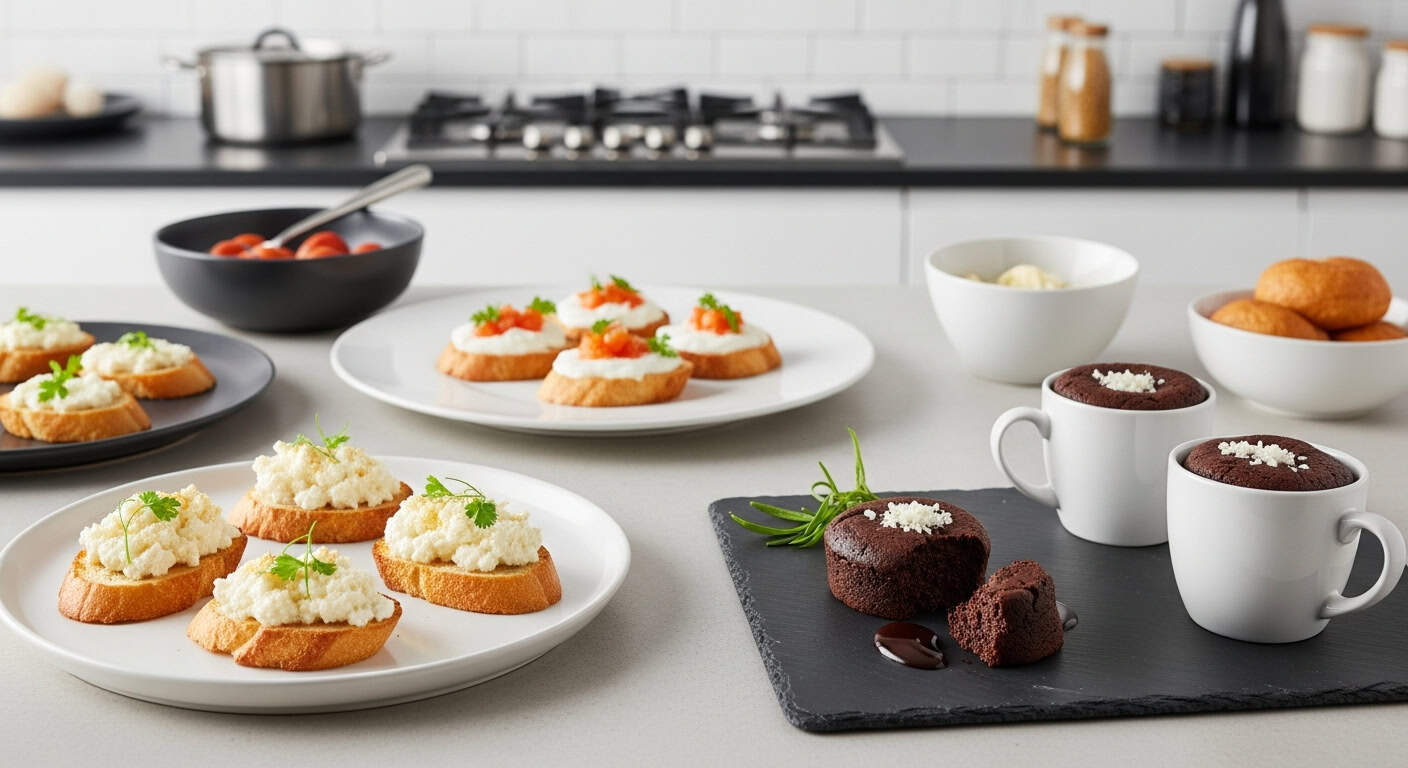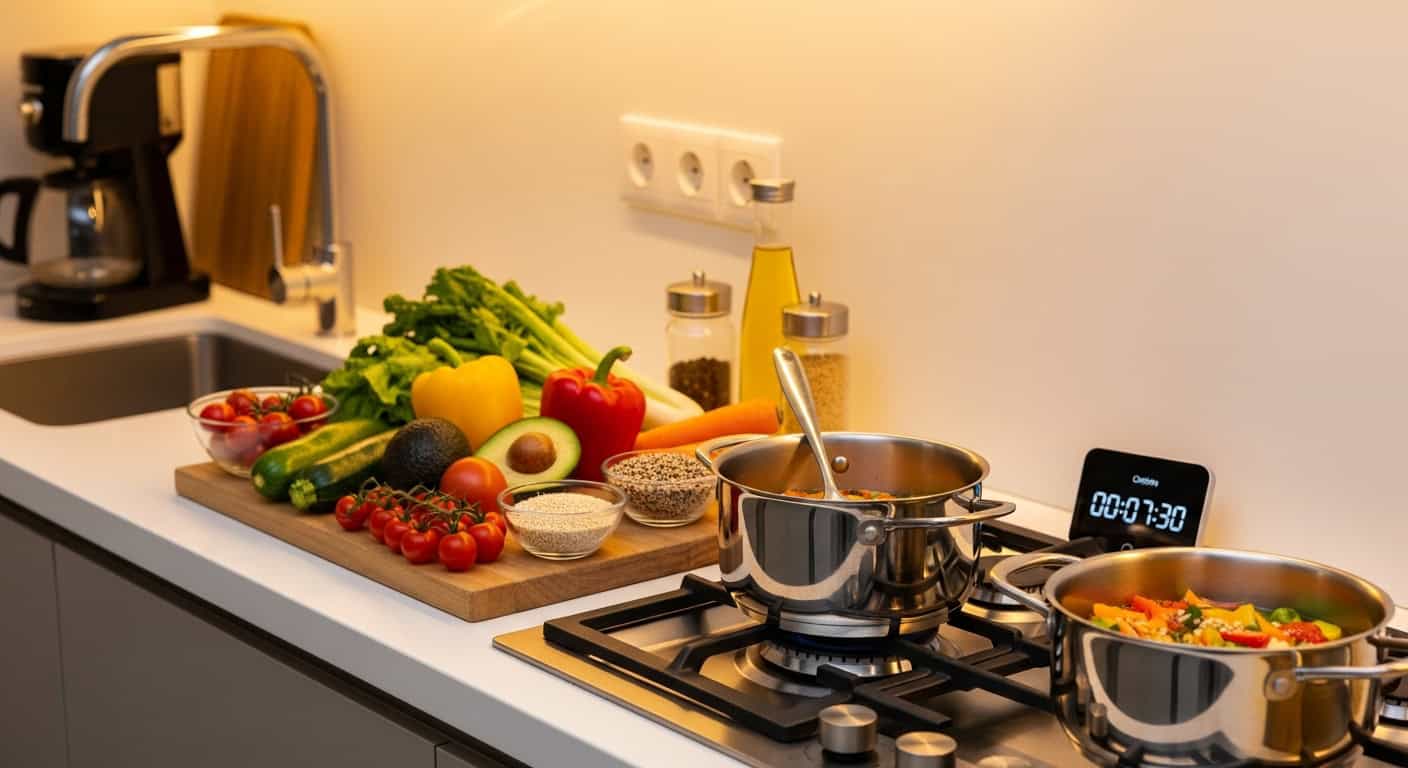Why Homemade Meals Are Better for Your Mental Health
Did you know that what you cook at home can have a profound impact on your mood and mental clarity? Recent research reveals a powerful link between eating homemade meals and improved emotional well-being. In a world where fast food and takeout are more accessible than ever, understanding the mental health benefits of preparing your own food is crucial. In this article, you’ll discover why homemade meals matter, how they nurture your mind, and simple ways to start reaping these benefits in your daily life.
The Connection Between Diet and Mental Health

Nutrition plays a vital role in how we feel and function mentally. Fresh, homemade meals are typically richer in essential nutrients like omega-3 fatty acids, B vitamins, and antioxidants, which support brain health and emotional stability (Psychology Today).
In contrast, processed foods are often high in sugar, unhealthy fats, and additives linked to increased risk of depression and anxiety. Prioritizing home cooking empowers you to choose wholesome ingredients, laying the groundwork for improved mental clarity, balanced moods, and overall well-being.
Stock Your Kitchen With Nutrient-Rich Ingredients

Creating a nourishing environment starts with what you keep in your kitchen. Choose a variety of colorful fruits and vegetables, whole grains such as brown rice or quinoa, and lean proteins like chicken, fish, or legumes. These foods contain vitamins and minerals that promote brain health and emotional stability (Everyday Health).
Organize your pantry and refrigerator so healthy options are easy to find and prepare. By prioritizing nutrient-rich staples, you’ll set yourself up for success in making homemade meals that boost both your body and mind.
Plan Balanced, Mood-Boosting Meals

Intentional meal planning can make a significant difference in your mental wellness. Focus on recipes that include omega-3-rich foods like salmon, walnuts, and flaxseeds, as these nutrients are linked to reduced depression and anxiety (Medical News Today).
Incorporate high-fiber foods—such as leafy greens, beans, and whole grains—to support gut health, which is closely tied to mood regulation. Don’t forget antioxidant-packed options like berries and dark chocolate. Creating balanced meals around these ingredients helps promote steady energy, emotional resilience, and overall mental clarity every day.
Make Cooking a Mindful and Enjoyable Ritual

Transforming cooking into a mindful ritual can greatly enhance its mental health benefits. Slow down and focus on the sensory experiences—chopping vegetables, smelling herbs, and savoring the process. Practicing mindfulness in the kitchen reduces stress and anxiety, encouraging a sense of calm and presence (Mindful.org).
Experiment with new recipes or invite loved ones to join you, turning meal prep into a creative, shared activity. The act of cooking at home becomes more than a chore—it evolves into a therapeutic outlet for self-expression and relaxation, enriching both your mind and mood.
Build a Supportive Mealtime Environment

The atmosphere during meals can significantly affect your mental well-being. Set the table thoughtfully, eliminate distractions like screens, and savor each bite with intention. If dining with others, engage in positive conversation and express gratitude for your food, which has been shown to foster emotional connection and satisfaction (National Institutes of Health).
Even when eating alone, create a peaceful ambiance with soft music or pleasant lighting. Cultivating a supportive mealtime environment encourages mindfulness, deepens your appreciation for homemade meals, and strengthens both social bonds and your sense of contentment.
Track Your Progress and Notice Mental Health Benefits

Monitoring your journey with homemade meals can help you recognize subtle yet meaningful improvements in your mental health. Pay attention to shifts in your mood, energy levels, and stress after several weeks of consistent home cooking.
Journaling about your experiences or practicing daily mindfulness can reinforce these positive changes and keep you motivated (Verywell Mind). Tracking your progress not only highlights the benefits but also helps you identify which meals and routines work best for your well-being, empowering you to make lasting, healthful choices.
Conclusion

Choosing to prepare homemade meals is a powerful investment in your mental well-being. By selecting nourishing ingredients, planning balanced menus, and making cooking a mindful ritual, you can boost your mood, resilience, and overall happiness (Healthline).
Creating a supportive mealtime environment and tracking your progress further amplify these benefits. Start small, experiment with new recipes, and savor the process—every step brings you closer to healthier, happier living, grounded in the simple joy and healing power of home-cooked food.






